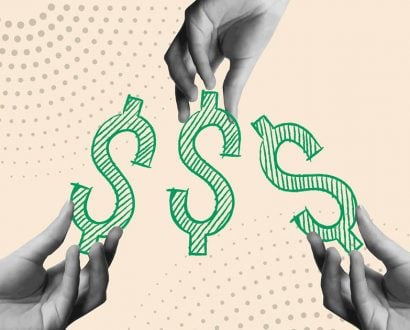The Cambridge Dictionary defines trust as, “To believe that someone is good and honest and will not harm you, or something is safe and reliable”.
In today’s society, the ability to trust has become significantly harder. In a world of fake news, alterative facts, royal commissions and the revolving door of politics, we do not know who or what to trust.
Edelman, a global communications marketing firm, conducts an annual global study to determine levels of trust. The results this year suggested that we are in a battle for the truth. The research showed an overall decline in trust, specifically in the US, which experienced the steepest decrease for any country ever measured over the 18 years of this study.
In 2018, global professional services network Deloitte undertook research into the Australian financial industry by surveying over 1,000 consumers.
The results show that trust in the financial services industry has taken a dive:
- 32% of customers said their trust in the finance industry had deteriorated in the past 12 months
- 25% of customers do not trust the financial service industry, with the banking and insurance sectors being the least trusted
- a staggering 47%, or approximately half, of customers surveyed do not trust their own financial service provider
The extent of distrust in the financial services industry is revealed by the fact that 23% of those surveyed said they would consider financial services from an airline carrier such as Qantas and Virgin.
This, I believe, not only shows how far the finance industry has fallen in the eyes of its customers, but also how important trust is. We have lost so much faith in the industry that we are considering having our financial services needs met by airline carriers. Though, on the flipside, I trust Qantas with my life every time I fly with it. So, is it too much of a stretch to trust it with my superannuation or savings?
Edelman believes that in order for us to feel safe when we delegate import aspects of our lives to others, “we need to trust them to act with integrity and with our best interests in mind”.
That when our trust in these institutions diminishes, we no longer feel safe. Edelman also suggests that – unlike reputation, which is based on previous behaviour – “trust is a forward-looking metric” and an indicator of whether people will find you credible in the future.
A loss of trust can mean a loss of employee and customer loyalty. What’s more, the costs to rebuild trust can be significant. We are seeing examples of this in the finance industry as it attempts to recover trust that has been destroyed through the findings emerging from the Banking Royal Commission.
In September 2018, most of the larger banks raised their interest rates, except for NAB. CEO Andrew Thorburn stated the need to rebuild trust as the contributing factor for its decision to go against the flow.
In a video to the market Thorburn said, “We need to rebuild the trust of our customers … By focusing more on our customers, we build trust and advocacy, and this creates a more sustainable business.” It is believed that for every month NAB does not raise its rates as the other banks have, it is forgoing approximately A$29 million per month.
“We need to rebuild the trust of our customers … By focusing more on our customers, we build trust and advocacy, and this creates a more sustainable business.”
Some analysts have said it’s a gamble; some have said it’s a great PR stunt. The reality is that NAB, as well as the rest of the finance industry, needs to rebuild trust. By the same token, the necessity to rebuild trust applies to our religious and political leaders too. Moreover, any attempts to build trust have to be genuine and cannot be faked.
American philosopher Ralph Waldo Emerson famously said, “Who you are speaks so loudly I cannot hear what you’re saying.” Put another way, when it comes to trust, your actions will speak louder than carefully crafted words.







